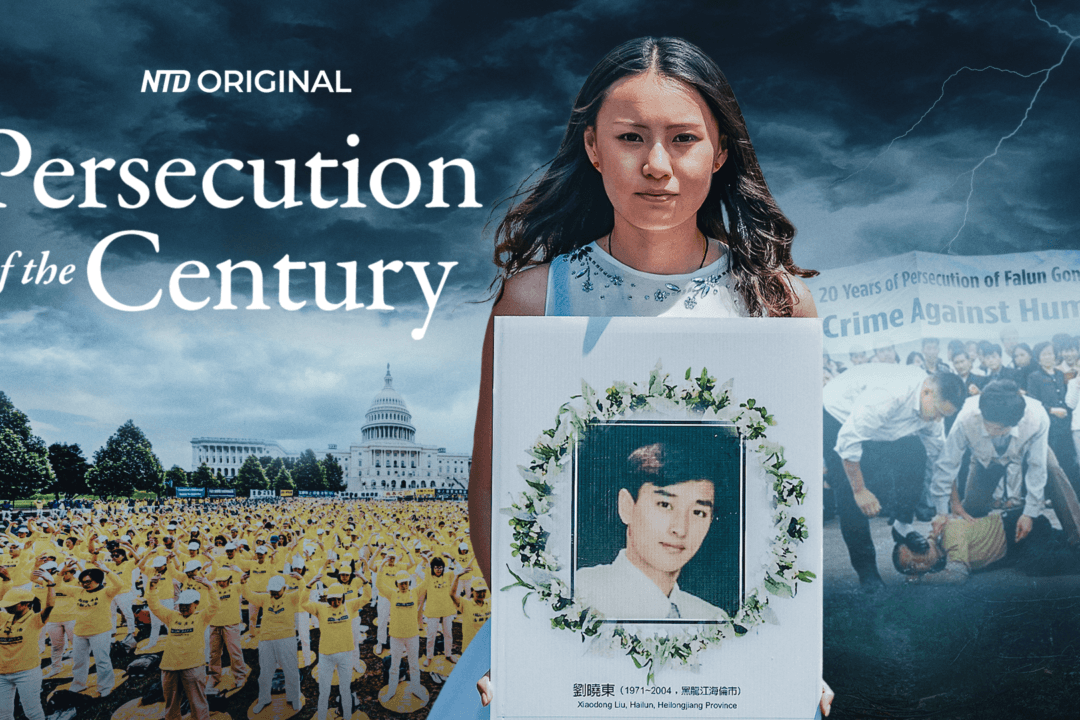As the Hong Kong student democracy protest continues, many compare the situation to the 1989 Beijing student movement. Critics of the mainland’s communist regime say Beijing is faced with a dilemma: it can neither harshly suppress the movement, nor end the protest.
The Occupy Central movement has won public popularity—despite forceful tactics by the police, more people from colleges and various sectors continue to join the protest.
It reminds many of the student movement in Beijing 25 years ago. Although rather different in scale and scope, the students’ demands and the authorities’ response are surprisingly similar.
On Sept. 29, BBC Chinese questioned how Beijing will react to ‘Hong Kong’s 1989’. It noted that tanks had brought an end to the 1989 student protest in Beijing, and people who witnessed those scenes are worried for Hong Kong’s students.
Will the tensions in Hong Kong trigger violent repression from Beijing?
Xia Ming, a political science professor at City University of New York, believes that if the CCP considers it necessary, using ammunition against the protesters is likely to happen, just like it did 25 years ago.
“The CCP’s only political aspiration is to maintain its one-party dictatorship,” Professor Xia Ming told NTD. “In this case, I think Beijing will resort to the worst scenario to ensure its principle is not bent.”
Zhao Yuanming, a senior legal expert, does not believe that a massacre as in 1989 will happen again, despite Beijing’s tough stance. But once Beijing resorts to repression, the peace-seeking students will temporarily retreat.
“From the perspective of Xi and Li’s regime, they should allow the Occupy Central to subside gradually and agree or resolve it by meeting reasonable demands,” Zhao Yuanming said. “The demand for universal suffrage is a general aspiration of the Hong Kong people; it is legitimate and sensible.”
Beijing’s Liaison Office in Hong Kong has condemned the Occupy Central movement as illegal, and stresses that the decision by the National People’s Congress’ on Sept. 28 is unchallengeable.
The Communist Party’s mouthpiece Xinhua also called for punishment of the “culprit” behind the Occupy Central movement.
Tang Baiqiao, president of the China Democracy Academy and a survivor of the 1989 Tiananmen massacre, told NTD the Hong Kong protest has been one of the most rational and peaceful of demonstrations, and there has not been any provocation towards the police. The Hong Kong government dispatched the riot police who have faced protesters with violence, but this has only led to increased support for the Occupy Central movement.
“It’s in good order now; only part of the traffic was stopped,” Tang Baiqiao said. “The intention of the activity was to paralyze traffic and force the Hong Kong authorities and the Chinese Communist Party to respond and to fulfill their commitment to Hong Kong.”
According to Sept. 29 foreign media reports, Hong Kong chief executive, Leung Chun-ying, and Hong Kong and Macau affairs leader, Zhang Dejiang, had proposed on Sept. 28 to suppress the protest with force, but Xi Jinping did not agree to it. State media also published an article encouraging suppression by armed police, but this was quickly removed from the Internet.
Chris Wu, editor-in-chief of China Affairs magazine said that those who suggest to suppress the protests with force are the ones who have differences with Xi Jinping and who hope to remove Xi.
“It can’t be dragged on for a long time; I think Zhang Dejiang is the greatest obstacle, because he is the Hong Kong and Macau’s affairs leader,” Chris Wu said. “Leung Chun-ying is just a messenger, and he can be easily replaced. He cannot control the overall situation as he doesn’t control the army, so he cannot [order to] open fire.”
Zhao Yuanming, the senior legal expert, believes the CCP is faced with a crisis of tremendous pressure, due to the courage of the Hong Kong people who are against violence, and because of concern and solidarity from the international community. Strong repression will completely paralyze and destroy Hong Kong, Zhao said. Therefore, the first step in easing the situation in Hong Kong should be for Beijing to ask Leung Chun-ying to step down.




